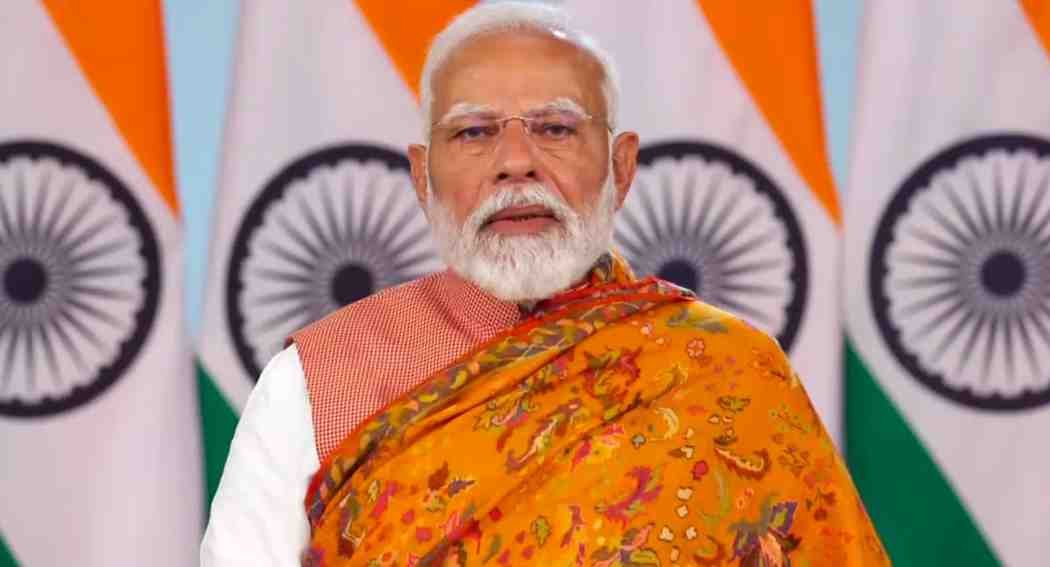Prime Minister Narendra Modi underscored India’s deep reverence for Bhagwan Buddha and how this respect is reflected in the country’s policies. He expressed gratitude to the people and government of Thailand for hosting the SAMVAD conference.
“Our reverence for Bhagwan Buddha is reflected in the policies of the Indian Government”, said the Prime Minister Modi. PM Modi remarked on the recent gesture of sending holy relics of Bhagwan Buddha to Thailand, which drew millions of devotees, further illustrating the deep spiritual connection between the two countries.
He noted that this edition of SAMVAD, taking place in Thailand, is a testament to the vibrant partnership across various sectors, aligning with India’s ‘Act East’ policy and Thailand’s ‘Act West’ policy to foster mutual growth and prosperity.
The Prime Minister highlighted the theme of the conference, which focuses on the Asian Century, asserting that this era is not solely defined by economic growth but also by social values.
He emphasized the teachings of Bhagwan Buddha as a guiding light for creating a peaceful and progressive world, advocating for a human-centric future.
Addressing the theme of conflict avoidance, Modi pointed out that many disputes arise from rigid beliefs in the singularity of one’s perspective. He referenced the wisdom of Bhagwan Buddha, who taught that multiple viewpoints can coexist.
By acknowledging diverse perspectives, he argued, societies can mitigate conflicts. He also drew from the Rig Veda, suggesting that recognizing the multifaceted nature of truth can help prevent discord.
The Prime Minister emphasized the rich cultural ties that bind the two nations, dating back over two millennia, and pointed to the shared reverence for Bhagwan Buddha as a unifying force.
The Prime Minister further elaborated on the dangers of perceiving others as fundamentally different, which can lead to distance and, ultimately, conflict.
He quoted a verse from the Dhammapada, emphasizing the universal fear of pain and death, and urged recognition of our shared humanity as a means to foster peace.
Modi cautioned against extreme positions, stating that they often lead to conflicts and crises, including environmental degradation. He reiterated the importance of following the Middle Path, as taught by Bhagwan Buddha, to navigate global challenges with moderation and balance.
The Prime Minister also addressed the pressing issue of humanity’s conflict with nature, which has resulted in an environmental crisis. He asserted that the solution lies in the shared traditions of Asia, which advocate for harmony with nature.
He invoked the principle of trusteeship, as espoused by Mahatma Gandhi, emphasizing the responsibility to use natural resources sustainably for the benefit of future generations.
Reflecting on his own journey, Modi shared that he hails from Vadnagar, a town known for its historical significance in Buddhist learning, and represents Varanasi, home to Sarnath, where Bhagwan Buddha delivered his first sermon.
He expressed pride in how these connections have shaped his understanding and reverence for Buddha’s teachings.
The Prime Minister highlighted various initiatives undertaken by the Indian government to promote Buddhist heritage, including the development of tourism infrastructure connecting key Buddhist sites and the launch of the ‘Buddha Purnima Express’ train.
He announced the inauguration of Kushinagar International Airport, aimed at facilitating international Buddhist pilgrimages, and outlined plans for enhancing infrastructure in Bodh Gaya.
Modi also spoke about the revival of Nalanda Mahavihara, once a premier center of learning, emphasizing India’s resilience in restoring it to its former glory.
He noted the declaration of Pali as a classical language to preserve Buddhist literature and the launch of the Gyan Bharatam mission to catalog ancient manuscripts.
The Prime Minister expressed optimism about the collaborative efforts with various nations to promote Buddha’s teachings, mentioning recent summits and initiatives aimed at strengthening Buddhist culture across Asia.
He highlighted India’s contributions to the construction of the Lumbini Museum in Nepal and the distribution of Buddhist texts to monasteries in Mongolia.
During his address, Prime Minister Modi recalled his late friend, Mr. Shinzo Abe, noting that the concept of SAMVAD originated from their discussions in 2015.
He expressed his honor in participating in this edition of SAMVAD, which he highlighted as a significant chapter in the enduring friendship between India and Thailand..
He conveyed his hopes for the insights gained from the religious roundtable to foster a more harmonious world, reiterating that the light of Dhamma will guide humanity toward an era of peace, progress, and prosperity.
The event, which brought together distinguished representatives from India, Japan, and Thailand, served as a platform for dialogue and cultural exchange, celebrating the shared philosophical and spiritual traditions of Asia.








